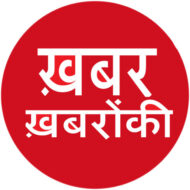
Ira Singh
Khabar Khabaron Ki,15 May’24
India grapples with rising wholesale inflation as the Wholesale Price Index (WPI) surged to a 13-month high of 1.26 percent in April, up from 0.53 percent recorded in March, according to estimates, amid expectations of RBI holding interest rates in the policy review next month.This sharp increase, primarily driven by escalating food and fuel prices,has raised apprehensions about the inflationary pressures gripping the economy.
According to the recent report published on Tuesday,The wholesale price index (WPI) based inflation has been rising for two months in a row. It was 0.20 per cent in February and 0.53 per cent in March. WPI inflation was 0.79 per cent in April last year.
Economists and analysts express concerns over the sustained inflationary trend, attributing it to the base effect and geopolitical tensions. The base effect refers to the impact of low inflation rates in the corresponding period of the previous year, magnifying the current inflationary surge. Additionally, geopolitical tensions and their repercussions on global commodity markets further exacerbate the inflationary pressures, posing challenges for policymakers.
Aditi Nayar, Chief Economist at ICRA, has expressed concern regarding India’s Wholesale Price Index (WPI) inflation, highlighting its significant sensitivity to global commodity prices, which have been on an upturn year after year.She further asserted that basis current growth- inflation dynamics, the possibility of a change in monetary policy stance in June appears exceedingly unlikely.
Nayar’s remarks come amidst speculation regarding the RBI’s next policy move, as policymakers grapple with the challenge of supporting economic recovery while containing inflationary pressures.
RBI last month kept interest rate unchanged for seventh time in a row and said that it remains vigilant towards upside risks to food inflation.The next meeting of the interest rate setting panel of RBI is scheduled for June 5-7, according to information.
The release of awaited GDP growth estimate for the fourth quarter the fiscal year (January-March),scheduled for the end of this month, holds considerable significance in translating the country’s economicoutcome.Also, the outcome of the monsoon season will play a crucial role in shaping the MPC’s stance. The timely arrival and distribution of rainfall have significant implications for agricultural output, rural incomes, and overall inflation dynamics .Besides,interest rate cut is likely only in second half of the fiscal, maybe in October- December,” believe economic experts.
